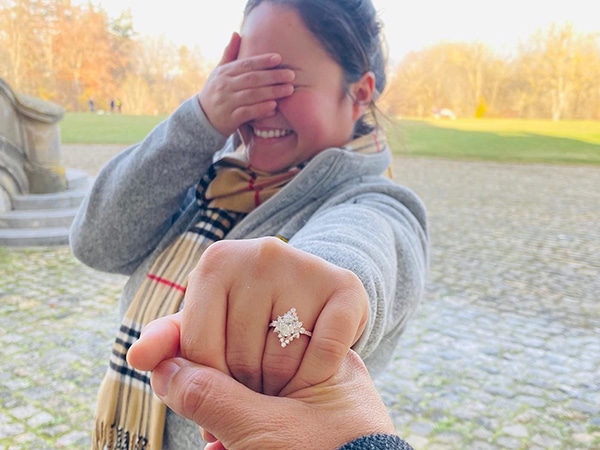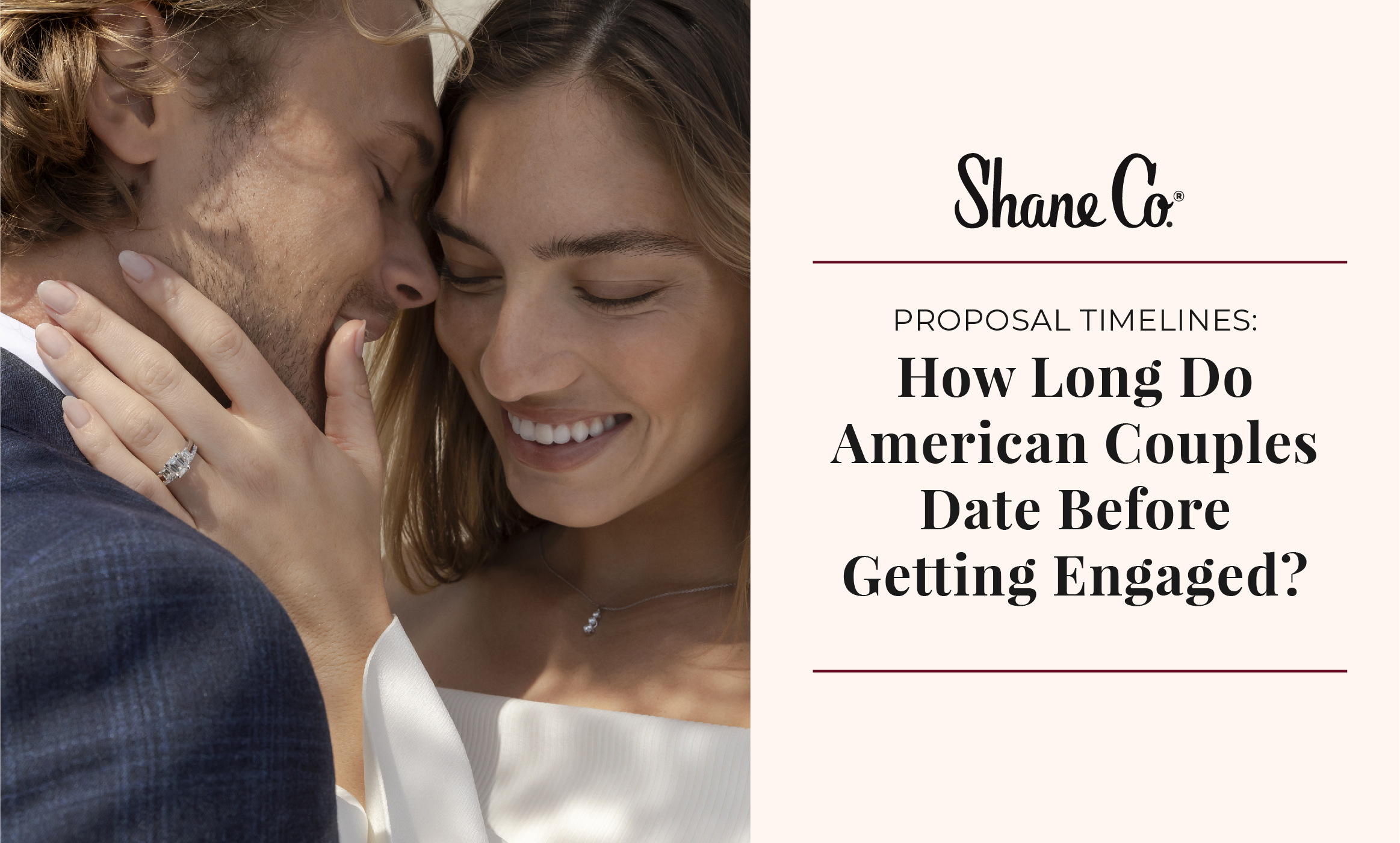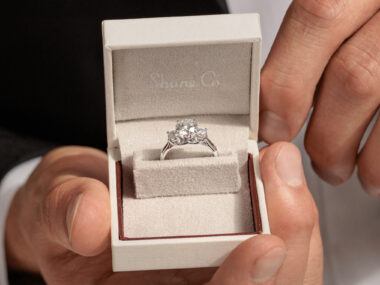
Deciding to get engaged is a huge step, so it’s natural to wonder if your relationship is headed on the right timeline. While there’s some data available on the success of marriages at certain times in our lives, ultimately your relationship is going to follow its own rules depending on the feelings, past experiences, and the expectations of you and your partner. There are, however, a few guidelines to consider that may help nudge you and your significant other towards the aisle.
What age should you get engaged?
There’s conflicting information on what makes a successful marriage work and how exactly age contributes to this success. One analysis of data provided by the National Survey of Family Growth suggests that getting married between the ages of 28 and 32 (and hypothetically, getting engaged about a year beforehand) offers the lowest risk of divorce.
Finding the sweet spot
The theory, which has been touted as the “Goldilocks theory of marriage,” may make sense to a lot of us. In your late twenties and early thirties, you’ve reached an age where you’ve experienced enough life and relationships to have an idea of what you’re looking for in a partner. You’ve most likely completed your education and are financially secure enough to consider having to support another person. You’re also not so much older that you’re set in your ways or can’t make the necessary adjustments that a successful marriage requires.
However, sociologist Philip Cohen reported that interpreting another set of data actually reveals that the highest rate of successful marriage occurs when one gets married in their mid-to-late 40’s, which he discusses further in this peer reviewed article. All of this is to say that there is no “right” age to get married or engaged – although tying the knot under the age of twenty tends to yield more divorces than those who wait until they’re a little older.
How education influences your relationship
A much more significant indicator of when to get engaged actually exists in level of education. Marriage and education influence each other in many different ways, particularly for women. Women (and men) may delay marriage to receive more education, postpone or stop education when they decide to have children, or go back to school when they go through a divorce.
In addition, highly educated people tend to delay marriage to a later age because they are focused on finishing school – leading to lower rates of divorce among this group. In fact, the majority of women getting married in that previously defined “sweet spot” of ages 27-32 are those who have graduated college. It’s possible that the effects we believe are related to age and engagement actually have more to do with education.

Couples are waiting longer to get engaged
So maybe there’s no right age to get married. What about within your relationship? Is there a particular amount of time a couple should stay together before deciding to tie the knot?
Much like the big age question, this is, again, entirely dependent on your personal relationship. Since the 1960’s, relationship timelines have generally spread out; meaning that couples usually want to spend more time together, often co-habitating, before deciding the buy a ring. One interpretation of data from the How Couples Meet and Stay Together survey reveals that over the past ten years, couples may wait up to five years before getting married, often living together for years before tying the knot.
Another survey conducted by Match.com asked 2,000 British men and women to map out their relationship journey and found that there are milestones that tend to repeat themselves at similar times in relationships. Most people in the study revealed that 3 months into a relationship, they were calling each other boyfriend and girlfriend, by 5 months, they were saying “I love you” for the first time, by 6 months they were introducing one another to each other’s parents, and between 2 and 2.5 years they were getting engaged.
Even if your relationship hasn’t moved along in those timelines, being able to see where other couples match up can help you determine how close or far off your relationship is from engagement. Have you already met each other’s parents? Gone on vacation together? Even if you haven’t been dating for that long, hitting these milestones may mean engagement is closer than you think. It may be time to start looking for engagement rings or discussing wedding bands for yourself and your partner.

Relationships are personal
We can’t stress enough the importance of remembering that these surveys are just that: surveys. They don’t take into consideration your own experiences or your relationship with your sweetheart. The key to figuring out how long you should wait before proposing with an engagement ring is to talk about it with your significant other. When the time is right, you’ll both know.
Shane Co. is here to provide all couples with stunning engagement and wedding rings tailored to your relationship. We’re a proud ally for LGBT wedding and engagement rings, and are happy to discuss personalized jewelry for any couple.


